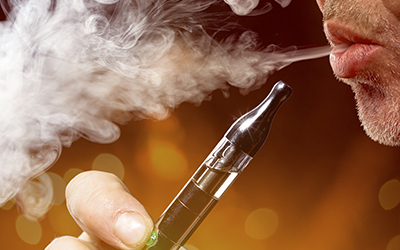Image Credit:
File ID 51605226 | © Narimbur | Dreamstime.com

For many adults, smoking or vaping may seem like a stress reliever or social habit. However, what often goes unnoticed is the serious impact these habits have on your oral health. Whether you’re a long-time smoker or recently switched to e-cigarettes, both activities pose risks that go far beyond simple tooth discoloration. According to the Centers for Disease Control and Prevention (CDC), smoking doubles your risk for gum disease compared to nonsmokers. Understanding these dangers is the first step toward making informed choices about your dental care and overall health.
If you’ve ever discussed your oral habits with a Windsor dentist, you’ve likely heard that smoking is one of the most harmful lifestyle choices for your teeth and gums. Nicotine and tar in traditional tobacco products stain teeth, reduce saliva production, and weaken gum tissue, making it easier for bacteria to thrive. Similarly, many vaping products contain nicotine and other chemicals that can alter the natural balance of your mouth’s microbiome—leading to issues such as inflammation, dryness, and even tissue damage.
Traditional cigarette smoke contains thousands of chemicals, many of which are toxic to oral tissues. Here’s how smoking affects your dental health:
A Windsor dental clinic can provide comprehensive screenings to detect these problems early. If you smoke, regular checkups every six months are crucial to catching gum disease or tissue abnormalities before they worsen.
Many people believe vaping is a “safer” alternative to smoking, but that’s far from the full truth. While vaping eliminates tar, it still introduces harmful chemicals into the mouth and lungs. Studies published in the Journal of the American Dental Association show that vaping contributes to dry mouth, tooth decay, and gum inflammation—key risk factors for oral disease.
Vaping liquids often contain nicotine, propylene glycol, and flavoring agents that can irritate soft tissues and disrupt your mouth’s natural pH balance. Over time, this can lead to enamel erosion and increased bacterial growth. Even nicotine-free vapes can cause dehydration and bad breath, further impacting your confidence and dental well-being.
If you’ve noticed increased sensitivity or discoloration after switching to vaping, scheduling a visit with a Windsor dentist near me is the best step forward. A professional evaluation can determine whether your symptoms stem from vaping and help you develop a personalized prevention plan.
Quitting smoking or vaping is one of the best decisions you can make for your teeth and gums. While the journey can be challenging, your dental team can play a key role in helping you restore your smile.
Here are some proactive measures recommended by dental professionals:
Your trusted Windsor dental clinic can offer teeth whitening, gum disease treatment, and other restorative options to reverse or minimize damage caused by smoking and vaping.
Your mouth reflects your overall health, and habits like smoking or vaping can leave lasting marks on your smile. The good news is that damage can often be managed or even reversed with professional care and a commitment to change. Whether you’re seeking preventive guidance, restorative procedures, or a full evaluation, connecting with a Windsor dentist near me is the first step toward a healthier future.
If you’re ready to protect your smile, contact your local Windsor dentist today to schedule a consultation and start rebuilding your oral health—one clean breath at a time.
We don’t only care about your smile, We care about you! Follow us on our blog to review trending topic and resources for oral care.